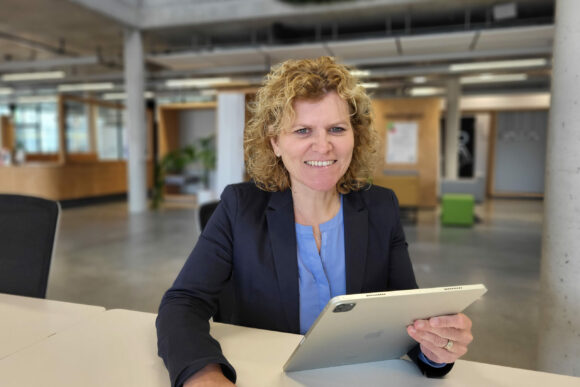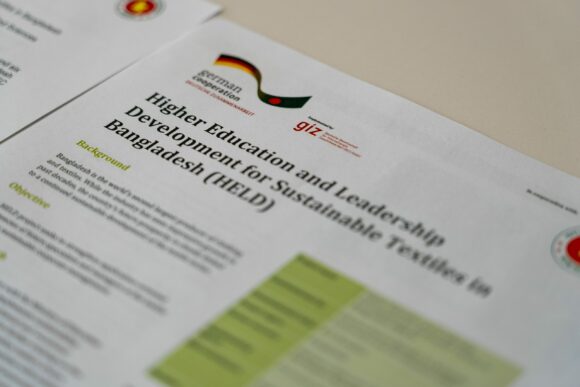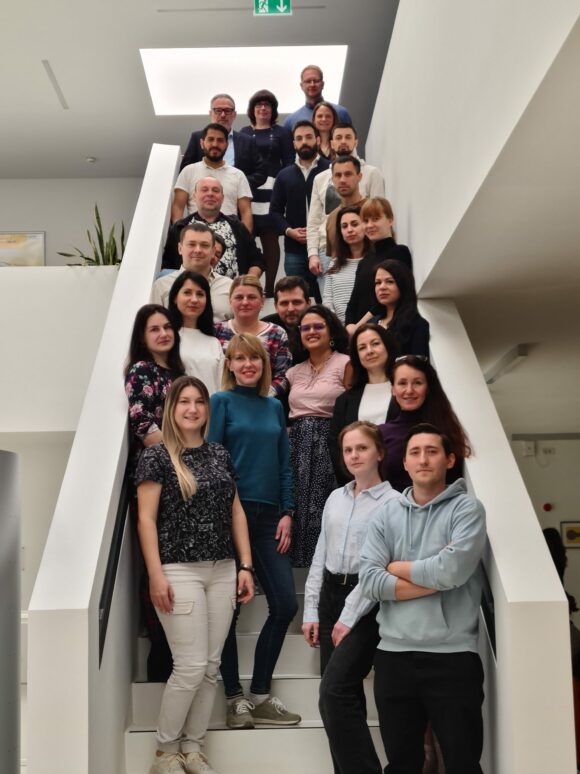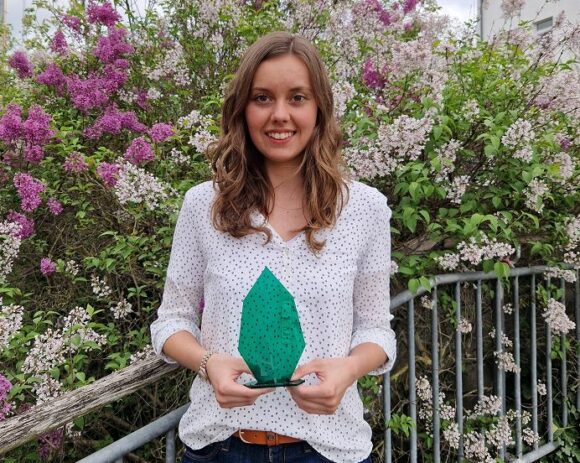Johannes Kade from Hof University of Applied Sciences and Andreas Erhard and Carlo Stingl from the University of Bamberg receive the graduate award of the Upper Franconia IT Cluster. They each received 2,000 euros in prize money for their work.
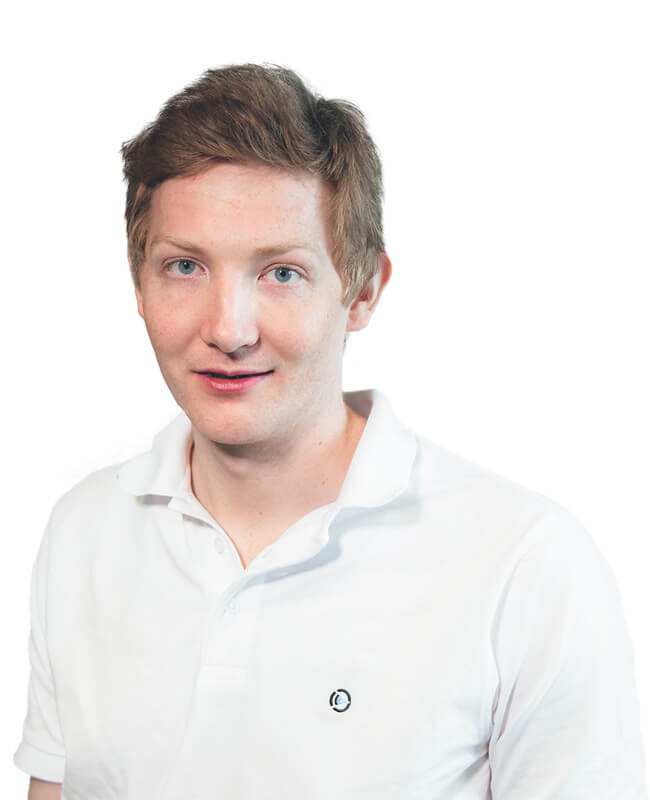
Every year, Upper Franconia produces many highly qualified graduates in the field of information and communications technology (ICT). To highlight this potential of the region, the IT Cluster Upper Franconia has been awarding prizes to practice-relevant final theses from this field since 2011. This year, the final and award ceremony of the “ITCO Graduate Award 2020” took place online once again.
Since the winner Johannes Kade from Hof University of Applied Sciences was unable to present his work in person due to illness, the jury decided to distribute the prize money of 6,000 euros in equal parts. “In doing so, we also wanted to do some justice to the particularly difficult conditions,” said jury spokesman and vice chairman of the IT cluster Thomas Feike. “All three topics were at a high level and the decision was very close.”
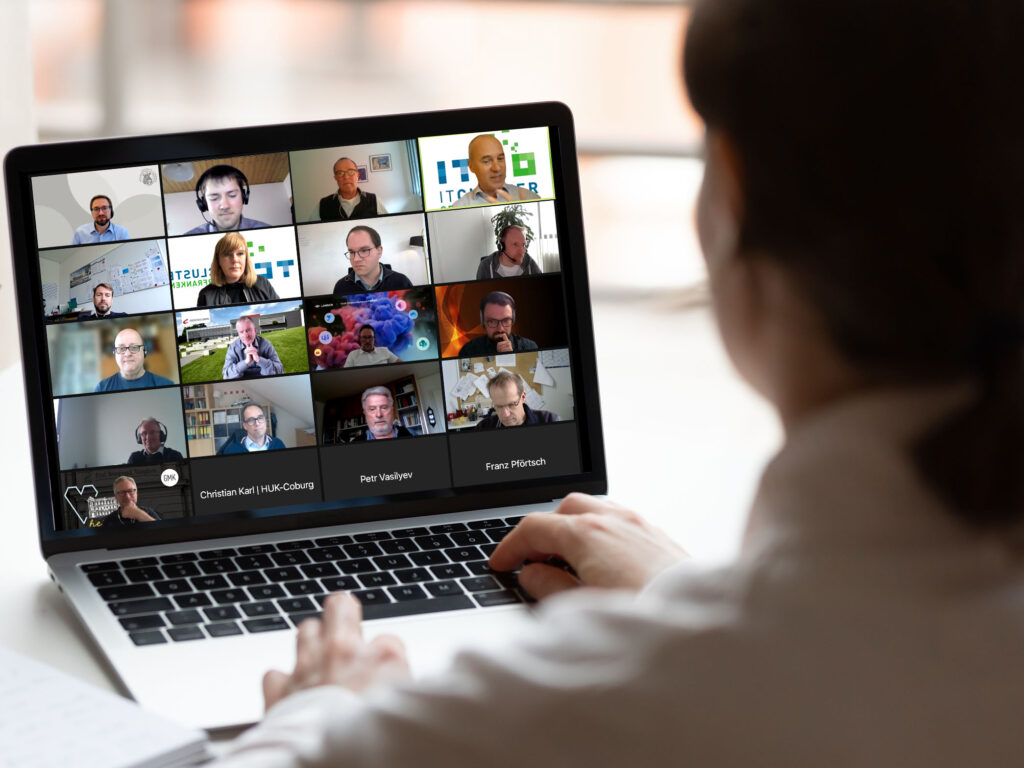
Just ahead with blockchain technology
“Signing documents based on blockchain technology”: this was the topic Johannes Kade from Hof University of Applied Sciences dealt with in his final thesis. The underlying blockchain technology allows information to be transmitted in a forgery-proof manner. This is made possible by a decentralized database shared by many participants. In this way, copies can be ruled out. “The topic was very interesting and perspective for practical application, this ultimately tipped the scales for first place,” says Thomas Feike.
With the topic container current trend of the IT illuminated
Andreas Erhard’s final thesis deals with one of the major trends in IT: containers. Entitled “Development and risk management of a hybrid container architecture”, the master’s thesis, which was supervised by Professor Udo Krieger at the Department of Computer Science, was written in cooperation with the company Brose Fahrzeugteile. It was about the practical introduction of containers in the company. Among other things, Erhard had developed a 14-point plan for this. Containers are supposed to accelerate and simplify applications. At present, however, many companies still have to create the prerequisites to be able to work with containers. The thesis therefore also dealt with the necessary requirements for working with this technology.
Intelligent taps to improve hand hygiene
Every year, 10,000 to 20,000 people in Germany die from hospital germs. Carlo Stingl’s final thesis deals with an invention that can improve hygiene behavior and save human lives. He researched the energy-autonomous, intelligent water tap. A faucet that helps measure and improve hand hygiene behavior. By flushing the line, it also prevents the formation of legionella. Currently, the faucets, which the master’s thesis is about in cooperation with the companies Oras Group and Hans Armaturen GmbH, are already in use in 80 pilot projects throughout Germany. Among other things in the citizen of Berlin Charité’, the Fraport and a Bamberger kindergarten. The master’s thesis was supervised by Professor Thorsten Staake from the Faculty of Business Informatics.
Further information is available at: www.it-cluster-oberfranken.de
About the IT Cluster Upper Franconia
The IT Cluster Oberfranken e.V. is an association of Upper Franconian companies. In the association, companies and institutions throughout Upper Franconia join together to form a specialized regional network. This creates a pool of knowledge and growth that benefits all the players involved. The goal is to increase productivity in the IT sector and create future-proof jobs. In the competition between regions, clustering is becoming increasingly important as an instrument for structuring and profiling the regional economy.




